Philanthropy and Volunteerism: Philanthropy

Susan Hess

Anne Heyman
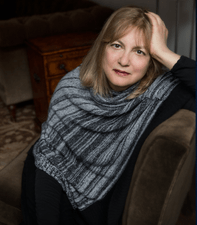
Alice Hoffman
Fanny E. Holtzmann
Fanny E. Holtzmann made waves as a lawyer for stars of Broadway and Hollywood as well as luminaries of world politics such as the Romanoffs.

Early Modern Italy
A study of the role of Jewish women in household formation, the household, and household dissolution, as well as their engagement in Jewish culture in early modern Italy, raises the question of how much of Jewish practice reflected the context of the surrounding society and how much engaged options in traditional Jewish practices, which were selected to meet their own needs. Despite the wealth of information about some well- known women and reports of the activities of many unnamed women, Jewish women, like Christian women, still functioned in the context of women and the period does not represent a Renaissance for women.
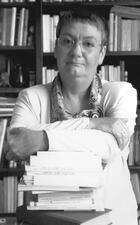
Modern Italy
Jewish women were crucial both to changes in post-emancipation Italian Jewish life and to the overall condition of women in modern Italy. This article reflects on the changes in the role of Jewish women in modern Italy within the Jewish press and institutions, their activism in shaping a secular civil society, and their experiences through the Fascist regime, the trauma of the 1938 Racial laws, emigration, resistance, deportation, survival, and reconstruction.
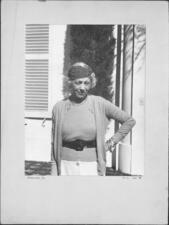
Blanche Frank Ittleson
Blanche Frank Ittleson’s pioneering work in treating and teaching intellectually disabled and emotionally disturbed children opened new possibilities for struggling children and their families.
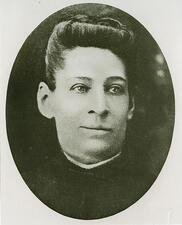
Frances Wisebart Jacobs
Francis Wisebart Jacobs helped transform the fledgling state of Colorado through her organization of charities and hospitals.
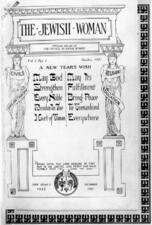
The Jewish Woman
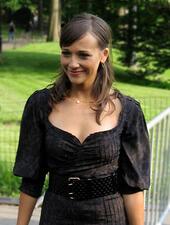
Rashida Jones
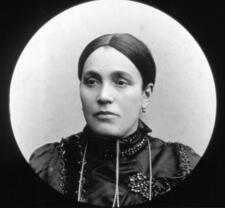
Taube Kaplan
Taube Kaplan (the Greene Rebitzin) was the principal fundraiser and founder of the Hebrew Maternity Ward, founded in 1916 in the Plateau-Mont Royal neighborhood of Montréal, Quebec. Her efforts contributed to a reduction in maternal and infant mortality in Montreal’s Jewish community. Kaplan also raised funds for the establishment of the Jewish General Hospital, which opened its doors in 1934.
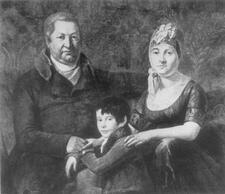
Chaile Raphael Kaulla
Chaile Raphael Kaulla was the most influential Jewish woman entrepreneur and one of the last Court Jews in eighteenth-century Germany. A devout Jew, Kaulla supported both Jewish and Christian poor people, founded a hostel for Jewish travelers, and in 1803 donated a bet midrash, library, and funding for three rabbis to her town of Hechingen. The Austrian Emperor honored Kaulla in 1807 and she and her family were allowed to live in Stuttgart with rights equal to those of Christian citizens.
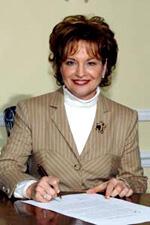
Julia Koschitzky
An activist, philanthropist, and leader of Canadian and world Jewry, Julia Koschitzky was born in Cardiff, Wales, the daughter of Max Podolski and Elli (Moses) Podolsk. The family relocated to Canada in 1949, eventually settling in Toronto in 1956. Julia and her husband Henry Koschitzky became involved in communal leadership and philanthropy, specifically in Jewish education and social welfare, and she took on active roles in Jewish affairs both in Toronto and around the globe.
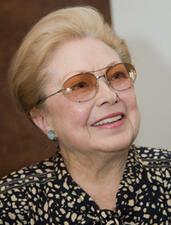
Mathilde Krim
Matilda Steinam Kubie
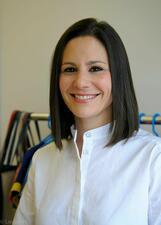
Melissa Kushner
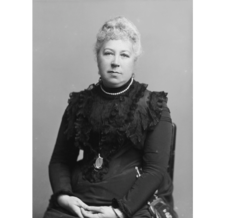
Constance Rothschild, Lady Battersea
Constance Rothschild Lady Battersea was a link between English and Jewish feminism, as she convinced upper- and middle-class Anglo-Jewish women to join English feminist groups such as the National Union of Women Workers and encouraged them to create Jewish women’s organizations, such as the Union of Jewish Women and the Jewish Association for the Protection of Girls and women, which allied themselves with the women’s movement.
Tillie Leblang
Tillie LeBlang was known as a businesswoman, philanthropist, and mother. With her husband and daughters, LeBlang created a multi–million–dollar box office that transformed the way Broadway shows sold tickets. When her husband, Joseph, died in 1931, she took control of the family business and continued to manage it until just a few months before she died.
Adele Lewisohn Lehman
Adele Lewisohn Lehman was a significant figure in the history of New York City philanthropy who was primarily involved in causes benefiting disabled people and children. A donor and fund-raiser, she also served as an administrator or board member for many agencies, including the East Side Free School for Crippled Children and the New York Board of Charities.
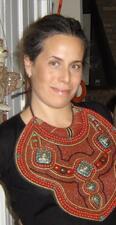
Amy Lehman
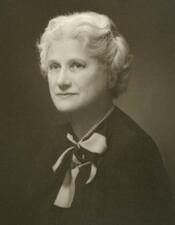
Edith Altschul Lehman
Known to many as the cultured wife of one of New York’s most popular governors and senators, Edith Altschul Lehman was in her own right a passionate social activist and philanthropist. She funded endeavors from building schools in Israel to creating a children’s zoo in Central Park.
Jennie Davidson Levitt
Jennie Davidson Levitt, daughter of Jewish philanthropists Saul and Mary (Cohen) Davidson, continued her family’s tradition of activism and philanthropy with her work for Jewish organizations. She helped rescue Jewish children during the war, and later lobbied for better medical and psychiatric services.
Adele Rosenwald Levy
Adele Rosenwald Levy used her affluence to promote public-spirited philanthropy and Jewish causes in the years surrounding World War II.

Sandy Levy
Irene Lewisohn
Irene Lewisohn was a Jewish philanthropist whose devotion to the arts led to the formation of the Neighborhood Playhouse and the Museum of Costume Art (now part of the Metropolitan Museum of Art). Her involvement in these and other social and philanthropic activities make her an important figure in New York’s cultural history.


